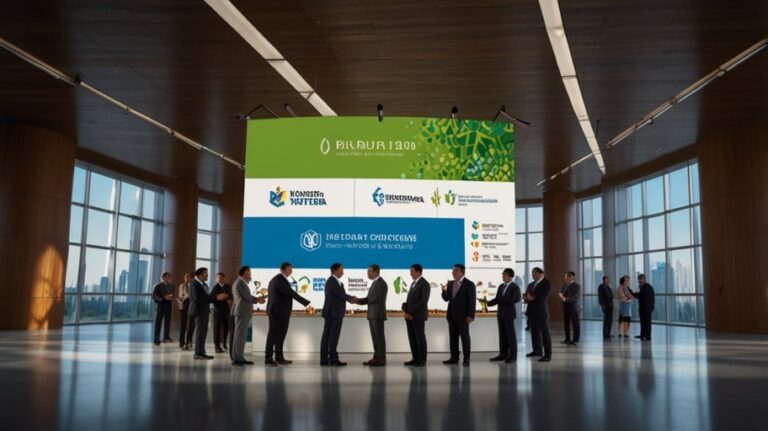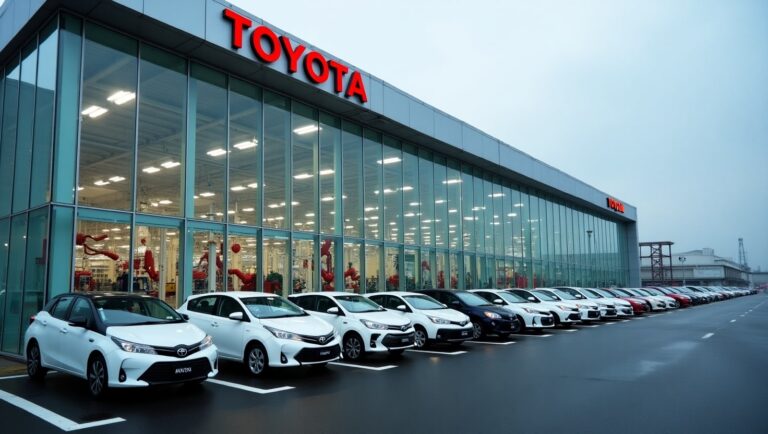Taking the initiative to decrease its dependency on Chinese critical minerals, via an audacious coup d’état held on July 16, 2025, Apple Inc. declared that it would invest in MP Materials Corp., which became the largest supplier of rare earth elements in the Western Hemisphere, for a sum of $500 million. This tactical alliance to ensure a sustainable domestic supply chain within the extended ecosystem of devices operated by the tech giant highlights Apple’s progressiveness in responding to the heightening geopolitical tensions and weaknesses in the supply chain. The transaction (which is one of the most important in the rare earth industry) indicates the larger trend toward resiliency rather than affordability in the manufacturing approach of technology businesses.
The Attainment of a Vital Asset
The backbone of modern technology, rare earth elements, a group of 17 minerals, enable activities ranging from smartphone screens to the functioning of electric motorcars. Apple, whose products such as iPhones, iPads, and MacBooks depend largely on rare earths, has been obtaining these materials primarily through China, the leading producer of these rare earths with a market share of approximately 80 percent. With the investment in MP Materials (the owner of Mountain Pass in California), the company itself seeks ways to diversify its supply chain, thanks to the strengthening of U.S.-based production.
The injection of $500 million will finance the development of the processing capacity of MP Materials and help the company progress faster towards the goal of having a completely U.S.-based supply chain to produce rare earth magnets. This will involve a new magnetic plant building in Texas, which is expected to be ready by the end of 2026. This plant will manufacture neodymium-iron-boron magnets, which are vital in Apple products, thereby reducing its reliance on international markets. The transaction also positions MP Materials as a major supplier to other industries, with renewable energy and the automotive sector being among the largest consumers of rare earths, as demand soars.
Geopolitics and Economic Turmoil
The move comes at a time when the U.S. is exceptionally vigilant about the rise in trade tensions between the U.S. and China, with recent U.S. policies implementing stricter control over China’s supply of essential minerals. The move aligns with the Biden administration’s effort to bring strategic industries back to the nation, leveraging the incentives of the Inflation Reduction Act. In its collaboration with MP Materials, Apple will not only ensure its supply chain but also gain advantages in becoming a sustainability and geopolitical risk manufacturing leader.
The costs are enormous in economic terms. MP Materials believes that the investment will generate more than 1,000 high-skilled American jobs in California and Texas, stimulating the local economy and supporting the U.S. to be a leading center of advanced manufacturing. The transaction also helps Apple achieve its ambitious environmental targets, as the operations of MP Materials focus on less harmful mining and recycling procedures than those that have long been practiced in China.
Domestic-Production Scaling Difficulties
Scaling an increase in domestic rare earth production is by no means a small task, despite the optimism surrounding the deal. The U.S has stayed behind in terms of refining and processing, and Mountain Pass has previously shipped raw materials to Asian countries where they are refined. The technical and financial challenges to expand MP Materials’ existing refining capacity are technical and financial barriers, such as elevated capital expenditure and the use of specialized skills. To a certain extent, Apple is addressing these problems through its investment, although industry analysts warn that it will take years before Apple is entirely independent in terms of its supply chain.
There are also concerns about the environment that are soaring. The mining and processing of rare earths are not only infamous for being resource-intensive, but they also pose threats, including the potential for groundwater pollution and radioactive waste. MP Materials has committed to meeting the high standards of environmental sustainability by utilizing the latest technologies to minimize its impact. Nevertheless, communities around the Mountain Pass mine have complained of long-term ecological effects, and Apple will have to work around such sensitivities in order to retain its reputation as an agent of sustainability.
An Industry Trend on a Wider Scale
The move by Apple shows an increasing trend by tech giants to stockpile supplies of critical minerals. Competitive firms, such as Tesla and General Motors, have also signaled that they will partner with suppliers based in their home markets and other countries that are their allies to minimize their dependence on Chinese supplies. The incentive is that the world expects an increase in the number of rare earths by 2030, due to the growth of electric cars, wind power plants, and smart devices. The fact that Apple has invested in it means the company is at the forefront, but it does not make it easier to obtain scarce domestic resources.
In the financial markets, the deal has already had a ripple effect. The stock of MP Materials went up by 15 percent after the announcement, as the analysts improved their opinion about the long-term growth prospects of the company. The shares of Apple, meanwhile, made a modest rise as a perceived prudent measure against the possible supply chain distortions. X posts have noted the deal as a smart move, with some users contemplating that this step may open the door to wider U.S. dominance in the rare earth market.
Looking Ahead
The agreement between Apple and MP Materials, which will see the former invest $500 million in the latter, represents a paradigm shift in Apple’s supply chain practice, as it is informed by economic logic and geopolitical insight. Investing in the domestic production of rare earths not only helps the company maintain its capability to produce cutting-edge devices but also aligns with the country’s priorities on the importance of developing its own rare earth resources, as many countries have sought to reduce their reliance on adversary suppliers. Its collaboration might prove a precedent that could be emulated by other sectors seeking to address the issues presented by a disintegrated world economy.
Balancing cost, sustainability, and innovation is a challenge that Apple will face as it integrates new capabilities into its supply chain. This venture will only thrive in successfully achieving what is stipulated in the ambitious expansion scheme of MP Materials and Apple’s ability to deal with the expectations of the stakeholders. At the moment, the technology conglomerate has made a definite move towards a safer and greener future, demonstrating its status as an innovator in contemporary technology.







